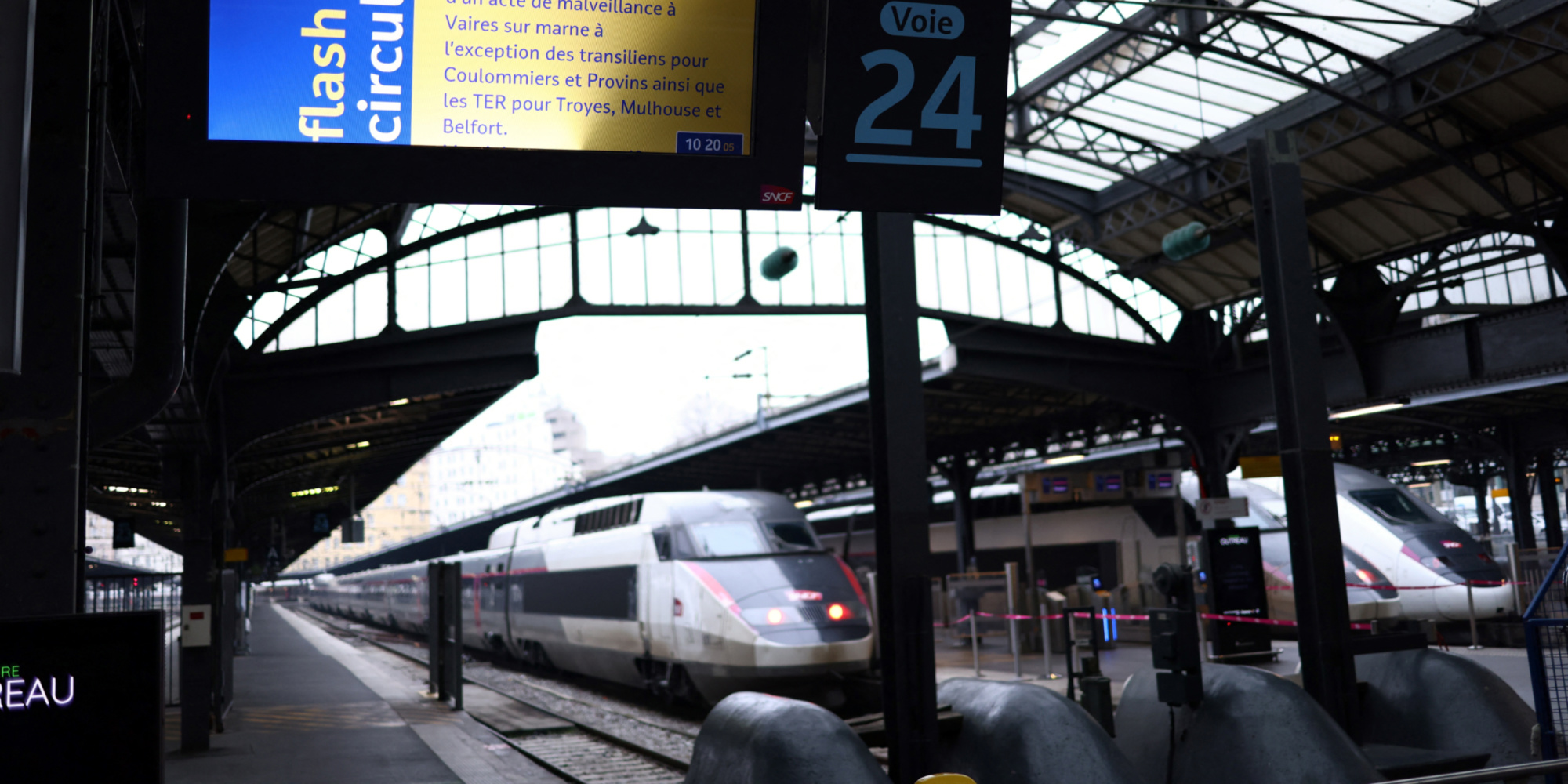Europe 1 with AFP 6:51 p.m., January 25, 2023
SNCF has confirmed the return to normal on departure and arrival at Gare de l'Est in Paris from Thursday morning, following the act of "sabotage" which destroyed facilities and paralyzed traffic 24 hours a day. tuesday.
SNCF Voyageurs provides for normal traffic for "all trains, TER and TGV from or to Gare de l'Est".
After two days of repairs in the facilities destroyed the day before by an "act of sabotage" east of Paris, rail traffic will resume completely at the Gare de l'Est on Thursday morning.
Already at midday on Wednesday, three out of four trains were running for the TGV Est compared to one in three at morning rush hour.
At the end of the afternoon, SNCF Voyageurs confirmed a return to normal traffic on Thursday morning.
"All trains, TER and TGV from or to the Gare de l'Est" will run as planned, said the public company.
A "titanic" work to repair the damage
A recovery made possible thanks to the "commitment" of SNCF Réseau employees who took turns day and night to repair the damage, the company stressed.
"It's a titanic job in terms of the number of cables to be replaced in the time allowed, but it's also painstaking work," explained Tom Danckaert, manager of the Infrapôle Paris maintenance unit. Is, in a video broadcast by SNCF Réseau.
The fire ignited around 600 electrical cables from a signal box in Vaires-sur-Marne in Seine-et-Marne.
“Signaling and telecom cables are cables on which a large number of circuits pass and on which we cannot afford to make errors in terms of connections”, detailed Tom Danckaert.
According to the engineer, this work "will easily mobilize a hundred people directly or indirectly for three days and three nights".
No trace of break-in, according to the Meaux prosecutor's office
Regarding the investigation, the Meaux prosecutor's office indicated that the "access gate to the SNCF tracks (had been) opened without any trace of break-in".
The authors then moved the concrete panels blocking access to a hatch where the boxes housing the electrical cables were located.
The fire is the work of people who "necessarily know the network well", said several executives of the railway company interviewed by AFP.
A former secretary general of Unsa-Ferroviaire, Roger Dillenseger, did not rule out that railway workers could be behind this sabotage.
In the midst of a social conflict over the pension reform, the secretary general of the CGT Philippe Martinez, however, invited to be wary of the shortcuts between these degradations and the social movement.
There is "no link" between the two, he insisted, but "when there is this kind of crime, there are necessarily penalties".
SUD-Rail, which called with the CGT-Cheminots for a renewable strike in mid-February if the government did not withdraw its pension reform, also invited to be "beware of amalgams".
The federation "does not support isolated acts that destroy our working tool," the union wrote in a statement.
The SNCF lodged a complaint and an investigation was opened by the Meaux prosecutor's office for willful degradation and endangering the lives of others.
In June 2021, signaling cables located in Drôme, on the Mediterranean high-speed line, were also set on fire, causing major delays on the Paris-Marseille line.

